Dealing with Contact dermatitis: know its Do’s and Dont...
Every skin is beautiful so it requires proper c...
Read more...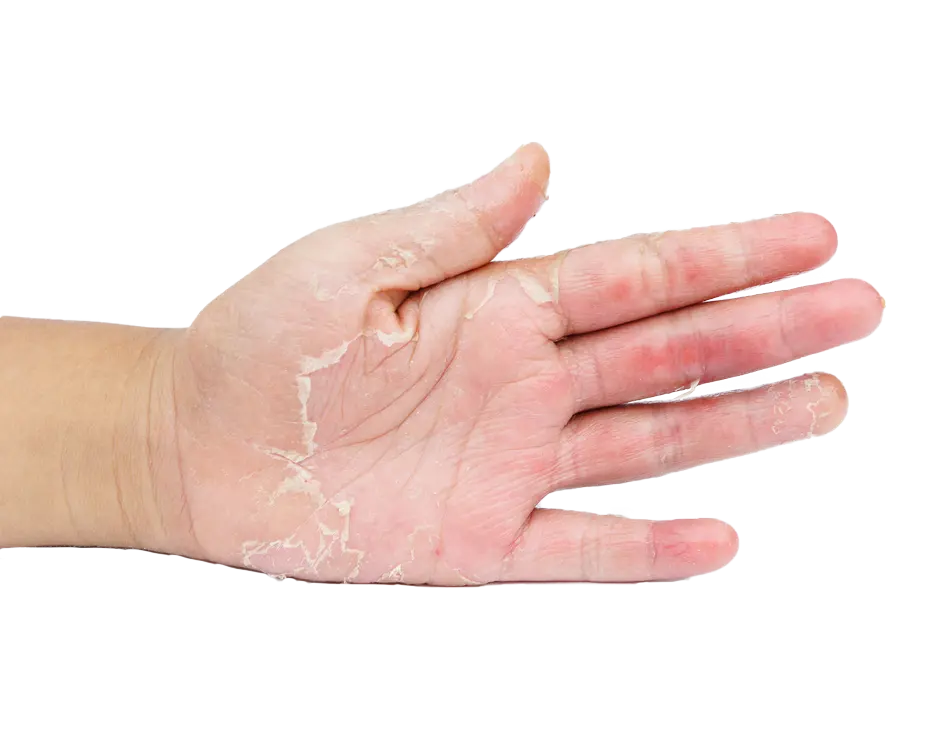
Today over 300 million population worldwide is affected with the skin fungal infection. In Ayurveda, the skin disorder is known as the Kushtha and the fungal infection is classified as Dadru. In humans, the prevalence of fungal infections occurs when the fungus invades the body and thereby takes over it. The most affected area includes feet, groin, and folds of skin. The infection causes rashes on the scalp or discoloration of the skin and this will overall cause itchiness. This correspondingly leads to a decrease in the immune system. The main causative agents are the micro-organism which is fungi. Fungal infection is an inflammatory condition that is caused by the fungus. These are characterized by a substance in their cell walls called chitin. The infection when mild shows superficial symptoms but when it affects internally it can become chronic. ...
We come across several people who are dependent on ointments and what not to treat their infection but the results they get are temporary as for the period they are good applying creams they get the results and as soon as they quit they can see the infection coming again which is a cause for concern. But Ayurvedic treatment for fungal infection of the skin is proven to provide effective results as it is a root cause, systematic treatment not symptomatic. Our changing lifestyle is the major cause of these skin infections which can be treated naturally through antifungal herbs. Fungal infection treatment in Ayurveda is a safe and effective way to treat the fungus without causing any side effects.
There are various Fungal infection types. However, they can be effectively treated with the help of Ayurveda.

It mainly affects the foot area like fingers, toes, or even soles of the feet. It can cause itchiness and redness along with a burning feeling. The skin can become so dry that it can start falling off as flakes. It is very common out of all skin fungal infection types.
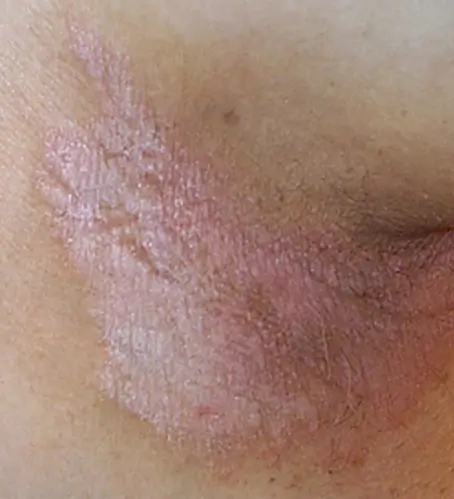
Whenever there is a fungal infection, around the genitals like the groin or upper thighs it is known as jock itch. Their skin becomes cracked and flaky. Also, the skin around the rashes can become slightly raised and darker. Any physical activity can increase the problem even more due to skin rubbing against each other.
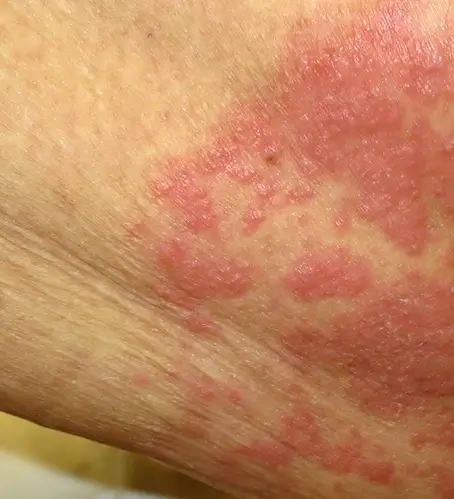
Yeast infection is a very common type of infection. It is commonly present in the body or floating in the environment, but whenever they multiply in numbers it can cause skin problems. It causes acne-like bumps around the rashes.
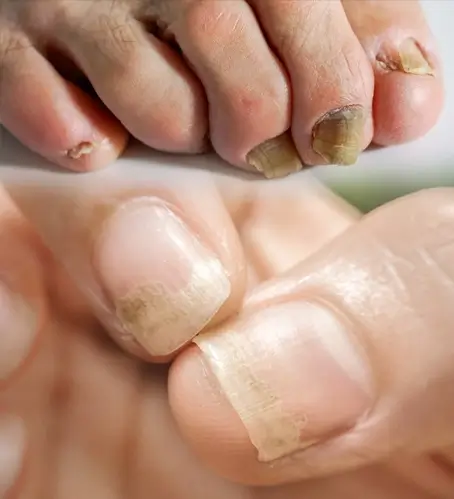
It is a fungal infection of the nail, which can affect both feet or hands. There are patches on the nails that are flaky and they often cause pits on the nails. It can cause pain and itching, and the color of the nail can become pale or yellow.
Get a free Assessment Report
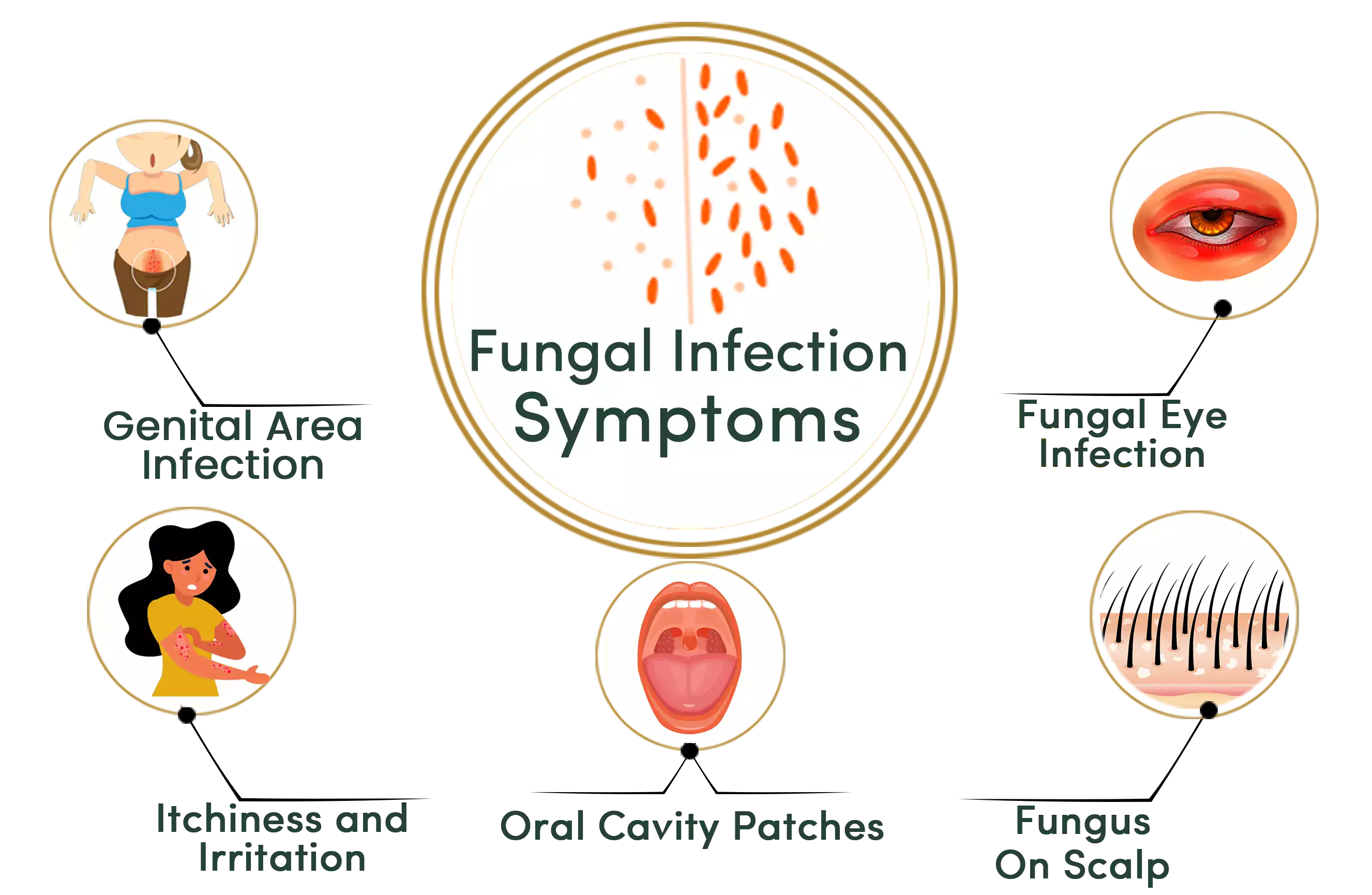
 Fungal Eye Infection
Fungal Eye Infection
Redness or pain in the eyes and sometimes even watery discharge eyes. If not treated can even lead to blurring of the eyesight.
 Fungus On Scalp
Fungus On Scalp
The common symptoms associated with it is bald patches and black spots on the scalp these, in turn, can cause itchiness. The serious condition is when pus-filled sores starts appearing.
 Oral Cavity Patches
Oral Cavity Patches
The reddish-white patches over the tongue or buccal mucosa can also be a visible sign of fungal infection.
 Itchiness and Irritation
Itchiness and Irritation
Over the affected dark-colored area on the skin, a person experiences itchiness and irritation.
 Genital Area Infection
Genital Area Infection
It is one of the most common signs where individual experiences red, itchy, and white discharge from the area commonly in females. It is associated with a lack of personal hygiene.
 Vamana, a part of Panchkarma uses herbs that would help in cleansing the stomach and eliminate toxins from the body which will prevent fungal growth.
Vamana, a part of Panchkarma uses herbs that would help in cleansing the stomach and eliminate toxins from the body which will prevent fungal growth.
 Turmeric is highly recommended as it has antiseptic and antifungal properties. It can be applied as a mixture of turmeric with water/lemon juice in the form of paste once or twice a day.
Turmeric is highly recommended as it has antiseptic and antifungal properties. It can be applied as a mixture of turmeric with water/lemon juice in the form of paste once or twice a day.
 Herbs like Neem and Tulsi also work wonder for preventing fungal infection as they both have anti-inflammation and wound healing property.
Herbs like Neem and Tulsi also work wonder for preventing fungal infection as they both have anti-inflammation and wound healing property.
 A nutrition-rich diet followed by Exercise and Yoga is also beneficial as it increases the immune system which in turn would not allow fungus growth.
A nutrition-rich diet followed by Exercise and Yoga is also beneficial as it increases the immune system which in turn would not allow fungus growth.
 Ayurvedic ingredients have proven to be effective against preventing fungal infection as these are rich in antibacterial and antifungal properties which are mostly found in black seed oil.
Ayurvedic ingredients have proven to be effective against preventing fungal infection as these are rich in antibacterial and antifungal properties which are mostly found in black seed oil.

Fungal Infection Patient
For the last 5 months, I was noticing the appearance of red patches on my skin. I consulted many doctors but did not get any effective results. One of a friend suggested the Ayurvedic treatment for it so I visited Dr. Sharda Ayurveda. After one week of the Ayurvedic Treatment from them, I got positive results. I am thankful to Dr. Sharda Ayurveda.

Fungal Infection Patient
I was observing reddish dark-colored patches under my armpit. So for this, I visited Dr. Sharda Ayurveda for the treatment. With expert guidance and Ayurvedic Treatment, I could feel the change after 10 days of regular medicine.
Blog Posts about the disease and their Ayurvedic treatments

Every skin is beautiful so it requires proper c...
Read more...
Chilly winters may be your favorite season, but...
Read more...
If one side, you are dreaming of healthy skin a...
Read more...